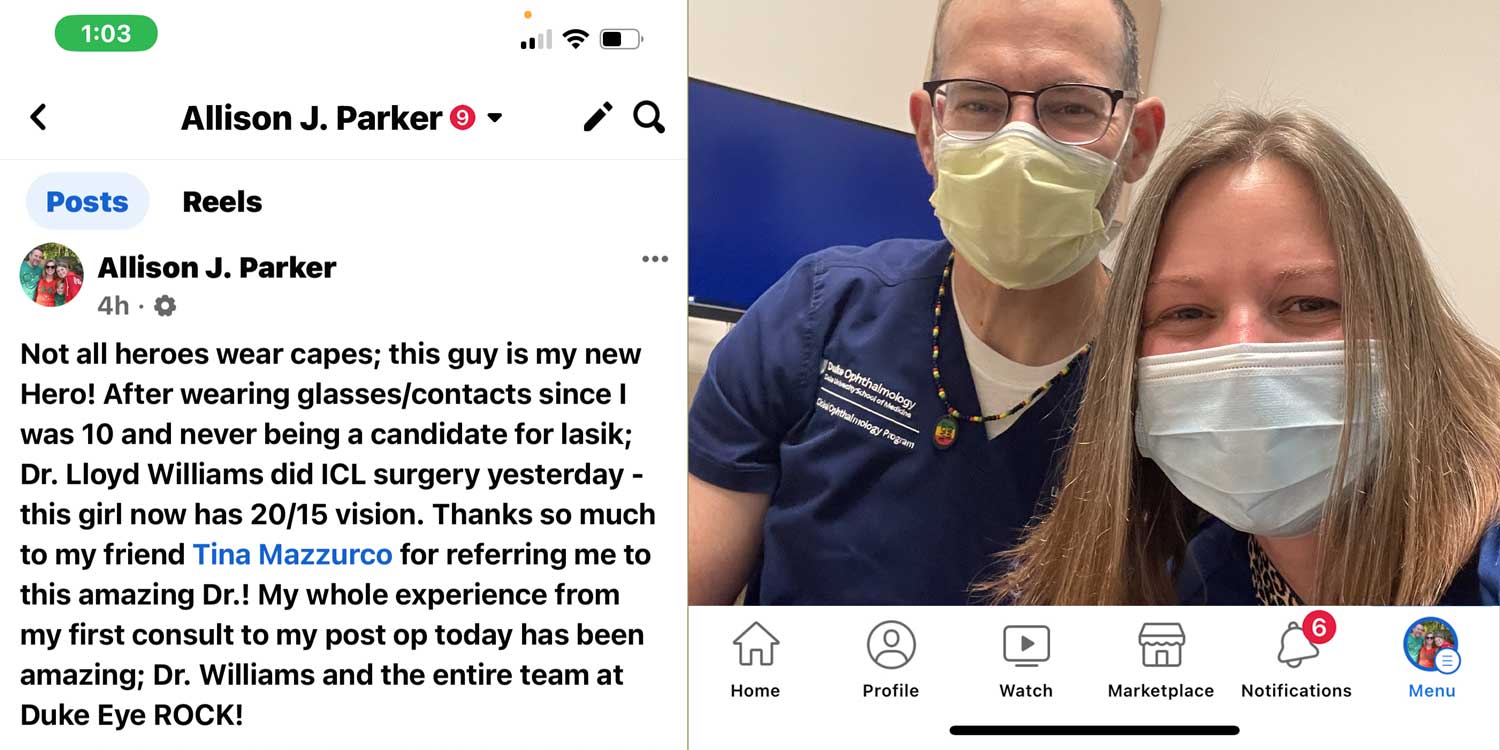It’s hard for 43-year-old Allison Parker to remember a time when she didn’t depend on glasses or contact lenses to correct her nearsightedness (myopia). As an adult, she hoped that LASIK eye surgery could improve her vision, but it was not possible due to the severity of her myopia. Then she learned that implantable collamer lens (ICL) surgery can permanently correct myopia. After undergoing the specialized procedure at the Duke Eye Center, Parker can now drive, work, parent, and see the world clearly, without the hassle and expense of corrective lenses.
LASIK Surgery Not an Option
Parker started wearing glasses at age 10 and contacts when she was 12. Each year, her ability to see things far away worsened, which meant ordering new corrective lenses annually. “It was expensive,” she said. Her daily contacts cost $1000 a year, and her glasses were over $500. Wearing contacts and glasses was also a hassle, but without them she was almost totally blind. As a full-time sales representative and parent, Parker led a busy life, and managing cleaning solutions, lost contacts, and scratched glasses was getting to be too much. “Plus, I was scared to drive at night because my vision even with contacts was bad.” Parker decided to explore LASIK surgery, but after consulting with two different eye doctors near her home in in Whitsett, NC, she was told that she was not a candidate.
She now has the peace of mind that her children can count on her to be available -- without first having to feel around blindly to find her glasses.

What Is ICL Surgery?
During this procedure, a lens made of natural collagen material is placed in the space between the eye’s natural lens and the iris (the colored part of the eye). “It acts like a contact lens inside the eye that you never have to change and never gets dry or dirty,” explained Lloyd Williams, MD, PhD, a corneal specialist at Duke Health, who has over 10 years of experience performing ICL surgery.
Hear the story of Allison's vision after ICL surgery.
LASIK vs. ICL
While LASIK can be a game changer for many, it wasn’t an option for Parker who had severe myopia. “During LASIK, we remove corneal tissue,” Dr. Williams explained. “The more nearsighted you are, the more tissue we remove, and at a certain point, it becomes impractical and even harmful.” Because ICL surgery leaves eye tissue intact, it is appropriate for people with moderate to severe myopia. According to Dr. Williams, the surgery only takes five minutes per eye with nearly immediate results and essentially no downtime.
A Brighter, Clearer World
Parker underwent ICL surgery on January 10, 2022. “I was a little nervous, but everybody was so professional, and it went really fast.” In the recovery room, she was able to read the clock without glasses or contacts for the first time in 33 years.
Today, Parker shares her story with anyone she thinks would benefit from ICL surgery, which she describes as life-changing. “I wish I had known about it sooner. Everything’s brighter and clearer, and there’s no more scrambling for glasses during the night. It’s a whole new world.”





